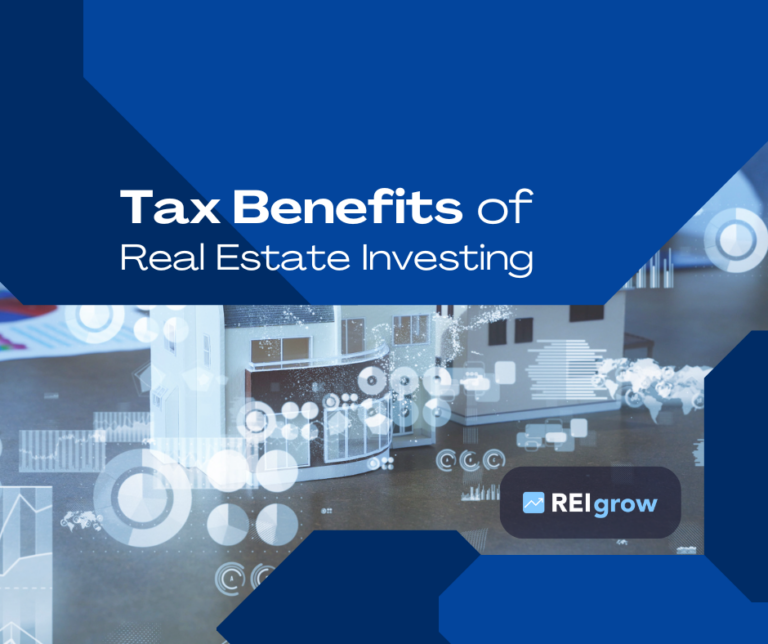9 Habits for Real Estate Investing Success
Savvy real estate investors choose and nurture habits that make them stand out in the market. Often, their habits are not chance occurrences but intentional decisions.
For starters, they grasp the intricacies of the market, take calculated risks, and practice financial discipline for real estate investing success. Each habit serves as a crucial foundation for a streamlined and profitable real estate investment business.
Do you want to become a successful real estate investor?
Want to understand the strategic mindset that drives their success in real estate investing?
Emulating successful investors is one of the best ways to learn about real estate investing.
Let us look at the distinctive habits that distinguish these investors.
1. They Are Good Planners
Successful real estate investors carefully analyze market trends, property values, and risks to maximize returns.
They set clear goals from the start to tailor real estate investment strategies for specific outcomes, whether it’s long-term wealth or short-term gains.
Do keep in mind that planning in real estate investing often goes beyond securing finances for your next flip or any other investment property.
It involves creating a detailed roadmap for:
- Motivated seller lead generation
- Network building
- Real estate investment marketing
- Property acquisition
- Management and renovations
- REI exit strategies
Experienced real estate investors establish specific milestones to track progress and adjust their strategies.
They understand their financial capabilities, risk tolerance, and real estate investment timeline.
So, they always rely on a detailed budget that accounts for REI lead generation & marketing, property acquisition costs, maintenance expenses, taxes, and surprises, if any.
2. They Devote Time and Effort to Understand their Markets
Do you know whether your target market is appreciating, stabilizing, or depreciating? How else can you know when to buy, sell, or hold investments?
Beyond conventional learning that one can acquire through real estate investing classes or workshops, seasoned investors often spend time researching trends, supply, demand, and the local economy.
They look beyond common real estate investing tips and keep an eye on regulatory changes and are generally aware of market trends that may affect property values.
This way, they can anticipate market shifts and make informed decisions.
Analyze the demographics of the area where you invest to gain valuable insights into
- The availability of distressed properties
- The demand for rental properties
- The demand for renovated houses and commercial properties
- Factors, such as population growth, income levels, and employment opportunities
- The competition in your market to understand saturation levels, pricing strategies, and unique selling points of other real estate investors
3. Understand the Risks Involved and Develop Financial Discipline
Real estate investing comes with uncertainties like market changes, unexpected repairs, and potential vacancies.
So, experienced investors take calculated risks. They practice financial discipline to wade through the ups and downs.
This means creating a clear budget, tracking expenses closely, and saving for emergencies. Many investors also make it a point to diversify their portfolios to safeguard their investments during economic downturns.
Financial discipline ensures you can weather any financial challenges that come your way. So, develop a comprehensive financial plan that outlines your investment goals, timelines, and risk tolerance.
4. They Find, Understand, and Develop a Niche
Do you want to start wholesaling real estate to flippers or cash buyers in your market?
How do you find real estate wholesale deals, houses you can flip, or investment properties that you can buy at below-market value?
Do you have cash and want to turn distressed properties into rentals for cash flow, tax perks, and long-term profit?
Successful investors often pinpoint a specific market segment or investment approach that suits their strengths and objectives.
Focusing on a niche like vacant properties, pre-foreclosures, abandoned houses, etc., allows you to become an expert in a specific strategy.
Then, you can capitalize on your domain knowledge, create a competitive edge, and grow your REI business.
Start by digging into market data to uncover niches with growth potential or unmet needs. Study population trends, economic cues, and local government regulations to spot openings that match your real estate investment goals.
5. Build a Good Reputation
All serious real estate investors know they need to conduct all their business dealings with integrity to maintain a positive reputation in the market.
Maintaining a good reputation for real estate investing success means you have to be transparent and showcase a history of successful investment property deals.
Remember, a good reputation takes time to build but can be easily damaged; so, make sure to uphold high ethical standards and professionalism in all your interactions.
Lastly, make sure to follow through on your commitments to build trust with sellers and other investors.
6. Learn to Use Technology & Automation
Running a successful REI business requires a well-structured, all-in-one CRM system for real estate investors like REI Grow.
Successful real estate investors use such a dedicated, multi-channel system to:
- Find targeted motivated seller lists for your REI business
- Nurture motivated sellers with pre-written marketing templates
- Organize all types of contacts – leads, investors, vendors, etc.
- Build a real estate investor website
- Capture seller leads via the REI website
- Automate email/text/direct-mail campaigns to nurture motivated sellers
- Automate task management and team communication
- Automate social media scheduling
- Automate follow-ups
- Track everything from a single dashboard
7. Build a Network
Regardless of the investment strategy they choose, savvy investors know it’s smart to network with individuals from different backgrounds and areas of expertise in the real estate industry.
This diversity can bring fresh perspectives, offer timely property investment advice, and create opportunities for collaboration.
Even veteran investors continue attending conferences, seminars, and networking events to meet new people who share their interests and to stay up to date on what’s happening in the market.
When they network, they often concentrate on building relationships by offering help and sharing their knowledge. This way, they establish trust and nurture lasting connections.
So, go out there, meet new people, and see how your network can grow and benefit you.
8. Continuous Evaluation
Successful property investors consistently review how well their portfolio and real estate investment marketing tactics are performing.
They keep track of metrics like lead response rate, conversion rate, cash flow, return on investment, and overall profitability to understand how well their real estate business is performing.
They assess the risks linked to their investments, like unexpected repairs, market volatility, regulatory changes, or potential vacancies, to proactively address any challenges.
9. Find Help When They Need It
Smart investors don’t hesitate to consult other investors, real estate attorneys, property managers, contractors, or real estate investment marketing experts when they know they need some help.
They tap into others’ expertise to broaden their outlook and make wiser choices. This way, they can save time and resources, and avert costly errors.
Professionals can offer solutions to problems that may not be immediately apparent to you, helping you overcome obstacles in house flipping, wholesaling, or other REI strategies effectively.
A real estate investment marketing expert, for instance, can demonstrate how you can use a CRM for real estate investors to process more seller leads with automation and close more deals.
Domain experts can share their experiences and advice to help you avoid common pitfalls in real estate investing. Learning from experienced individuals can accelerate your learning curve and help you grow as an investor.







